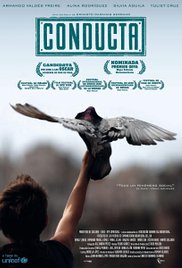This is a list of Cuban Academy Award winners and nominees. This list details the performances of Cuban filmmakers, actors, actresses and films that have either been submitted, nominated or have won an Academy Award.
This is a list of Cuban Academy Award winners and nominees. This list details the performances of Cuban filmmakers, actors, actresses and films that have either been submitted, nominated or have won an Academy Award.
| Academy Award for Best Actress | |||||
| Year | Nominee | Film | Status | Notes | Ref(s) |
|---|---|---|---|---|---|
| 2022 (95th) | Ana de Armas | Blonde | Nominated | First Cuban actress to be nominated for an acting Academy Award. First Cuban actor to be nominated in a leading acting category. | |
| Academy Award for Best Supporting Actor | |||||
| Year | Nominee | Film | Status | Notes | Ref(s) |
|---|---|---|---|---|---|
| 1990 (63rd) | Andy García | The Godfather Part III | Nominated | First Cuban to be nominated for an acting Academy Award. | |
| Academy Award for Best Original Song | ||||||
| Year | Nominee | Film | Song | Status | Notes | Ref(s) |
|---|---|---|---|---|---|---|
| 1942 (15th) | Ernesto Lecuona | Always in My Heart | "Always in My Heart" | Nominated | First person from a Caribbean country to be nominated in any category. (Shared with Kim Gannon). | |
This list focuses on Cuban films that won or were nominated for the Best International Feature Film award.
| Academy Award for Best International Feature Film | |||||
| Year | Director(s) | Film | Status | Notes | Ref(s) |
|---|---|---|---|---|---|
| 1994 (67th) | Tomás Gutiérrez Alea & Juan Carlos Tabío | Fresa y Chocolate | Nominated | ||
The Academy Award for Best Picture is one of the Academy Awards presented annually by the Academy of Motion Picture Arts and Sciences (AMPAS) since the awards debuted in 1929. This award goes to the producers of the film and is the only category in which every member of the Academy is eligible to submit a nomination and vote on the final ballot. The Best Picture category is traditionally the final award of the night and is widely considered as the most prestigious honor of the ceremony.
The Academy Award for Best International Feature Film is one of the Academy Awards handed out annually by the U.S.-based Academy of Motion Picture Arts and Sciences (AMPAS). It is given to a feature-length motion picture produced outside the United States with a predominantly non-English dialogue track.
The Academy Award for Best Animated Feature is given each year for the best animated film. An animated feature is defined by the academy as a film with a running time of more than 40 minutes in which characters' performances are created using a frame-by-frame technique, a significant number of the major characters are animated, and animation figures in no less than 75 percent of the running time. The Academy Award for Best Animated Feature was first awarded in 2002 for films released in 2001.

The Academy Award for Best Cinematography is an Academy Award awarded each year to a cinematographer for work on one particular motion picture.
The Academy Award for Best Documentary Feature Film is an award for documentary films. In 1941, the first awards for feature-length documentaries were bestowed as Special Awards to Kukan and Target for Tonight. They have since been bestowed competitively each year, with the exception of 1946. Copies of every winning film are held by the Academy Film Archive.

The Academy Award for Best Film Editing is one of the annual awards of the Academy of Motion Picture Arts and Sciences (AMPAS). Nominations for this award are closely correlated with the Academy Award for Best Picture. For 33 consecutive years, 1981 to 2013, every Best Picture winner had also been nominated for the Film Editing Oscar, and about two thirds of the Best Picture winners have also won for Film Editing. Only the principal, "above the line" editor(s) as listed in the film's credits are named on the award; additional editors, supervising editors, etc. are not currently eligible.

The Academy Award for Best Original Score is an award presented annually by the Academy of Motion Picture Arts and Sciences (AMPAS) to the best substantial body of music in the form of dramatic underscoring written specifically for the film by the submitting composer. Some pre-existing music is allowed, though, but a contending film must include a minimum of original music. This minimum since 2021 is established as 35% of the music, which is raised to 80% for sequels and franchise films. Fifteen scores are shortlisted before nominations are announced.
Néstor Almendros Cuyás, ASC was a Spanish cinematographer. One of the most highly appraised contemporary cinematographers, "Almendros was an artist of deep integrity, who believed the most beautiful light was natural light...he will always be remembered as a cinematographer of absolute truth...a true master of light".
Latin American cinema refers collectively to the film output and film industries of Latin America. Latin American film is both rich and diverse, but the main centers of production have been Argentina, Brazil and Mexico. Latin American cinema flourished after the introduction of sound, which added a linguistic barrier to the export of Hollywood film south of the border.

Jon Alpert is an American journalist and documentary filmmaker, known for his use of a cinéma vérité approach in his films.

Alsino and the Condor is a 1982 Nicaraguan film directed by Chilean filmmaker Miguel Littín. It was nominated for the Academy Award for Best Foreign Language Film. It won the Golden Prize at the 13th Moscow International Film Festival. The film was a co-production between Nicaragua, Mexico and Cuba. The film is loosely based on the novel Alsino by Chilean writer Pedro Prado, and is set during the Nicaraguan Revolution. It starred Dean Stockwell.
The Silly Age is a 2006 Cuban film directed by Pavel Giroud. It was Cuba's submission to the 80th Academy Awards for the Academy Award for Best Foreign Language Film, but was not accepted as a nominee.
These are the lists of Hispanic Academy Award winners and nominees by country. Each list details the performances of Hispanic filmmakers, actors, actresses and films that have either been submitted, nominated or have won an Academy Award. These lists are current as of the 91st Academy Awards ceremony held on February 24, 2019.

Behavior is a 2014 Cuban drama film directed by Ernesto Daranas. In English writing, the film is usually referred to by the title Behavior. The film premiered in February 2014, and played at the Málaga Film Festival before having its US premieres simultaneously at the Chicago Latino Film Festival and Havana Film Festival New York in April 2014. Behavior was then screened in the Contemporary World Cinema section at the 2014 Toronto International Film Festival. It was selected as the Cuban entry for the Best Foreign Language Film at the 87th Academy Awards, but was not nominated.